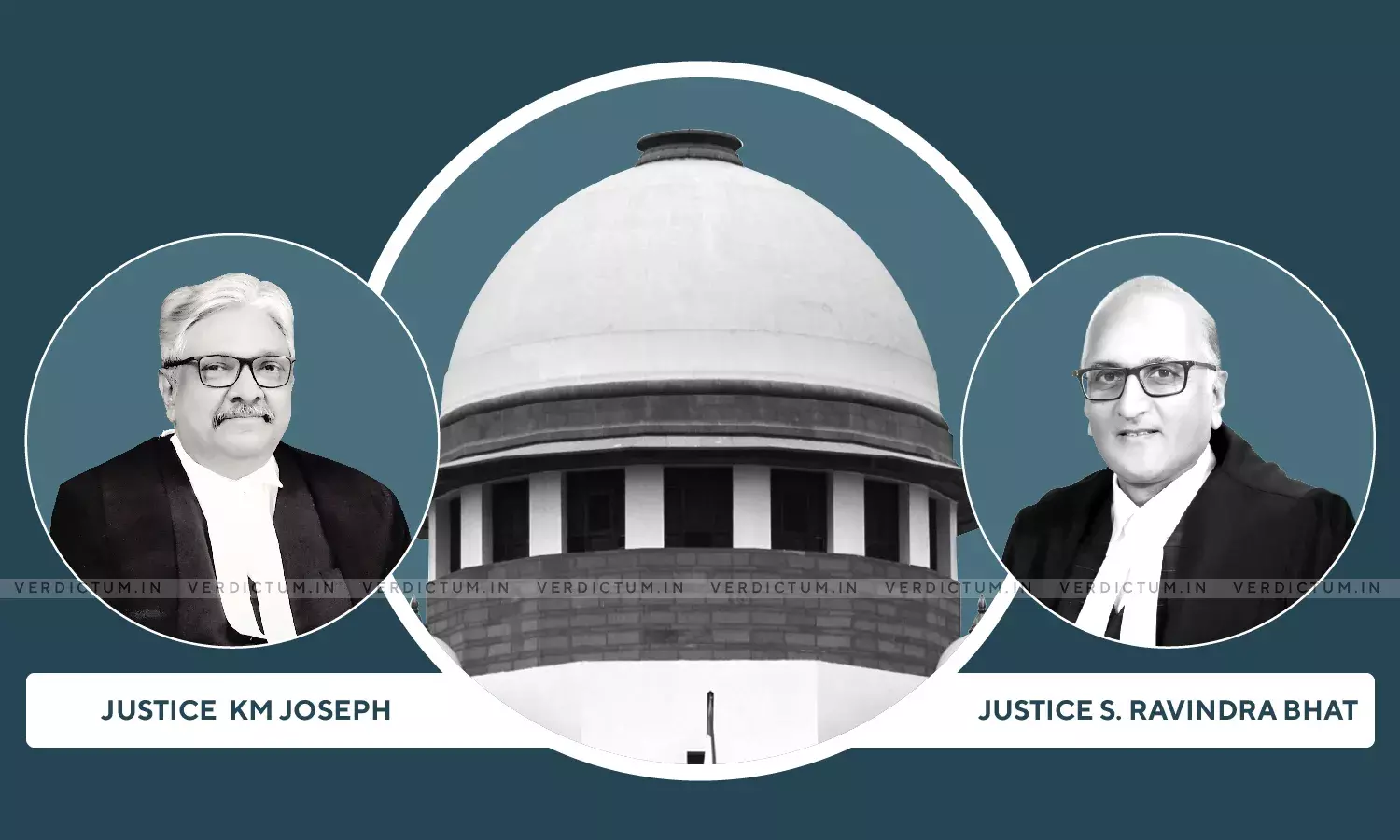Family Settlement Document Recording Past Transactions Is Not Compulsorily Registrable: Supreme Court

A two-judge Bench of Justice KM Joseph and Justice S. Ravindra Bhat has held that "Khararunama", a family settlement document that merely recorded the past transactions of the family arrangement would not attract the mandate of compulsory registration under Section 17(1)(b) of the Registration Act.
An appeal was preferred before the Supreme Court assailing the order of the High Court which had set aside the order of the Trial Court and held that the documents which were the unregistered family settlement "Khararunama" and the receipt of Rs. 2 lacs by the Respondent were not admissible in evidence since they were unregistered and not stamped.
In this case, the Respondent instituted a suit and sought a declaration of title over the scheduled property and for eviction of the Defendants who were the Appellants in the present case and a perpetual injunction was also sought.
A partition took place between the Appellants, Respondents, and other family members, and the joint family property between them was divided as per their share. It was alleged by the Respondent that as he was in the hospital for treatment his signatures were taken and settlement was made and alleged receipt (Documents which were in controversy in the case)
As per the Appellants, a Khararunama was executed for recording the facts of settlement. The Second Appellant paid Rs. 2 lacs to the Respondent for vacating the portion in favor of the former for which a receipt was issued by the Respondent on 08.12.1993.
The Appellants sought to mark the Khararunama and the receipt dated 08.12.1993 before the Trial Court. The Court allowed marking of the documents, overruling the objection of the Respondents. However, the High Court held that in the absence of registration and not being stamped the documents were inadmissible.
The Appellants while relying on the precedent Subraya M.N. v. Vittala M.N. contended that there could be an oral relinquishment of the share of the family members in the family settlement and family arrangement. If the terms of the said family settlement are reduced into writing, and it is only a memorandum executed subsequently recording the terms of the oral family settlement, then, no registration is needed, it was contended.
It was further argued that Khararunama merely recorded past transactions of the family arrangement and therefore it did not create or extinguish any right over immovable property, hence the document did not attract Section 17(1)(b) of the Registration Act.
While the Respondent argued that since his signatures were taken on a blank paper and were used for family settlement, the document Khararunama required registration under Section 17(1)(b) of the Registration Act.
The issue which was dealt with by the Court was whether a family arrangement document was compulsorily registrable and had to be stamped for its admission as evidence.
The Apex Court while relying on various precedents and provisions of the Registration Act, observed that the document Khararunama merely recorded the past transactions of the family settlement. "The document does not purport to by itself create, declare, assign, extinguish or limit right in properties. Thus, the Khararunama may not attract Section 49(1)(a) of the Registration Act."
"If the Khararunama by itself, does not 'affect' immovable property, as already explained, being a record of the alleged past transaction, though relating to immovable property, there would be no breach of Section 49(1)(c), as it is not being used as evidence of a transaction effecting such property," additionally the Bench opined.
Further, the Court held, "Merely admitting the Khararunama containing record of the alleged past transaction, is not to be, however, understood as meaning that if those past transactions require registration, then, the mere admission, in evidence of the Khararunama and the receipt would produce any legal effect on the immovable properties in question."
"As far as stamp duty goes, on our finding regarding the nature of the document, viz., Khararunama, being record of the alleged transactions, it may not require to be stamped," the Court asserted while referring to A.C. Lakshmipathy and others v. A.M. Chakrapani Reddiar and others.
In the light of these observations, the Court allowed the appeal and set aside the impugned judgment of the High Court.

